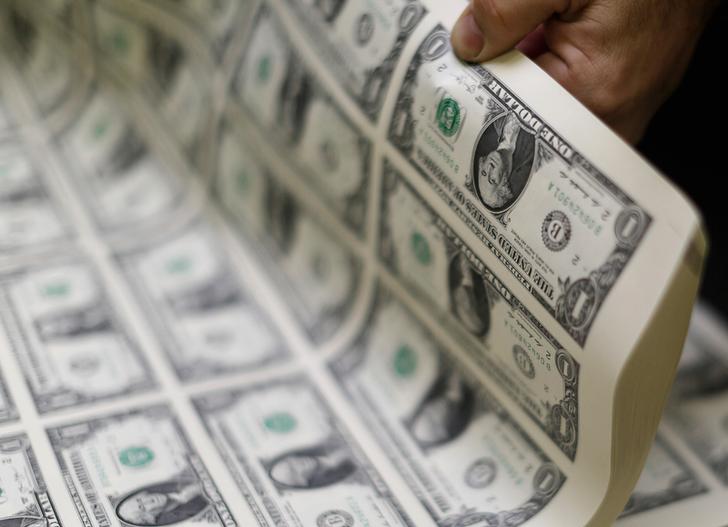Latest NEWS
- Aswat Masriya, the last word
- Roundup of Egypt's press headlines on March 15, 2017
- Roundup of Egypt's press headlines on March 14, 2017
- Former Egyptian President Hosni Mubarak to be released: lawyer
- Roundup of Egypt's press headlines on March 13, 2017
- Egypt's capital set to grow by half a million in 2017
- Egypt's wheat reserves to double with start of harvest -supply min
- Roundup of Egypt's press headlines on March 12, 2017
Egyptian international reserves inch up in October, climb to $16.4 bln

United States one dollar bills are curled and inspected during production at the Bureau of Engraving and Printing in Washington November 14, 2014. REUTERS/Gary Cameron
CAIRO, Nov. 5 (Aswat Masriya) - Egyptian international reserves closed at $16.415 billion at the end of October, rising from $16.335 billion at the end of September, the Central Bank of Egypt (CBE) said on Wednesday.
The change represents a slight increase of $80 million, but a much-needed one for the cash-strapped Egyptian state. Between August and September, foreign reserves dropped by $1.76 billion.
In its monthly announcement, the CBE does not cite reasons for the changes in the value of the foreign reserves.
For the first time in 23 years, Egypt's foreign currency debt surpassed the value of its assets at the end of September by $560 million, according to a report by Pharos Investment Bank on Sunday.
This means that foreign currency barely covers Egypt's external debts and deposits scheduled for payment, an analyst from the bank had said.
Up to 80 percent of the CBE's reserves is made up of foreign currency, which also includes gold.
The CBE has been placed under scrutiny lately amid a dollar shortage in Egypt, which is straining the country's foreign reserves. The bank sets the price of the Egyptian pound against the dollar, at least on the official auction, but has had to depreciate the Egyptian pound multiple times this year.
After the most recent depreciation last month, the Egyptian pound is changing hands for 7.93 to the dollar at state auctions and more than 8 Egyptian pounds on the ground.
Within less than a week of the latest deprecation, Hesham Ramez, the CBE governor resigned and was replaced by Tarek Amer, amid expectations that the new governor will resolve the currency crisis.
Egypt's economy has been hit hard by the political turmoil which gripped the country since a popular uprising toppled former President Hosni Mubarak in January 2011.
The political situation has taken its toll on foreign reserves, which stood at almost $36 billion before 2011.
Foreign reserves hiked between March and April when Egypt received deposits worth a total $6 billion on April 22 from three Gulf nations: Saudi Arabia, the United Arab Emirates and Kuwait.
The three oil-rich Gulf countries were quick to back and financially support Egypt's interim authorities, which removed the Muslim Brotherhood-affiliated former President Mohamed Mursi in 2013.










